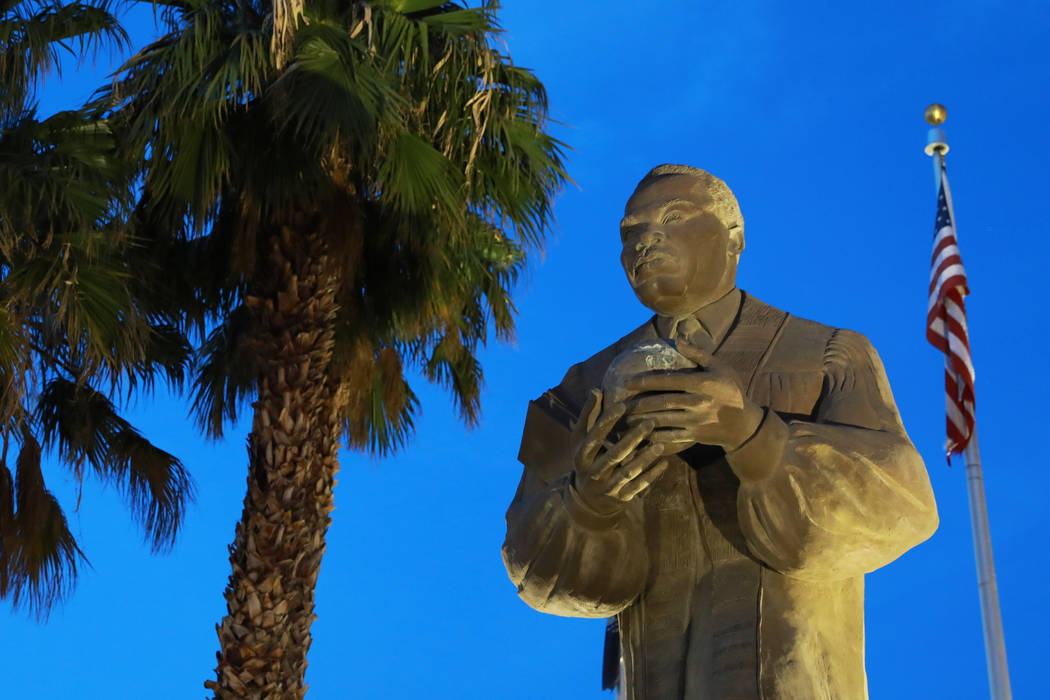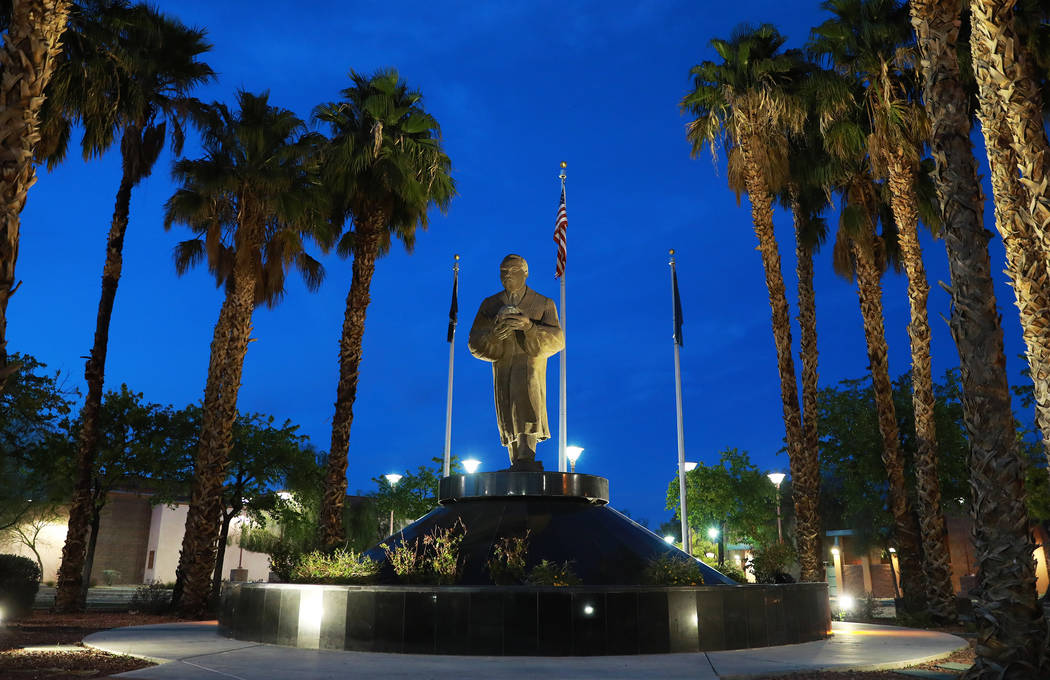1954 article refers to Las Vegas as ‘Mississippi of the West’
Just about every Las Vegan has heard the phrase at one time or another: “The Mississippi of the West.”
Former state archivist Guy Rocha traces the epithet’s origins to a March 1954 issue of Ebony magazine, which had a story headlined “Negroes Can’t Win in Las Vegas.”
The story is emblematic of why Martin Luther King Jr. visited the city a decade later.
The subhead of the story by James Goodrich was “Nevada gambling town has more racial barriers than any other place outside of Dixie,” and the piece is a meshing of unnamed sources, broad generalizations and solid reporting. While modern readers may quibble with some points, the thrust of the article bears historical validity.
From the first paragraph, Goodrich sets a tone local tourism officials no doubt didn’t appreciate: “A Negro celebrity, concluding a stopover in Las Vegas recently, sized up the Nevada boom town this way: It’s worse than any place in Mississippi.”
The article calls Las Vegas “rigidly Jim Crow by custom. No other town outside of Dixie has more racial barriers. … (T)he Negro finds little welcome anywhere. He is barred from practically every place whites go for entertainment or services. He cannot live outside a segregated, slum-like community. He is relegated to the most menial jobs. For the Negro, Vegas is as bad as towns come.”
Goodrich estimated the number of African-American residents here as “at least 10 percent of its 43,000 pop- ulation,” and asserted that “the whites of Las Vegas overwhelmingly support racial prejudice and make no bones about it.’”
The article addressed issues African-American residents of the ’50s faced regarding employment, public accommodations and housing.
Goodrich also wrote that “Negroes themselves could be a great deal to blame for their lowly position in the town. … The record shows that Negroes of Las Vegas have never been very active in civic matters” and “are politically impotent because they have yet to show a concerted vote in elections.”
He concludes: “From where the Negro eyes the world in Las Vegas, two shadows are omnipresent in his perspective — the ‘mean white boss’ and a damnable job. He cannot escape either, if he chooses to remain in the town. There is no other course open to him.”























